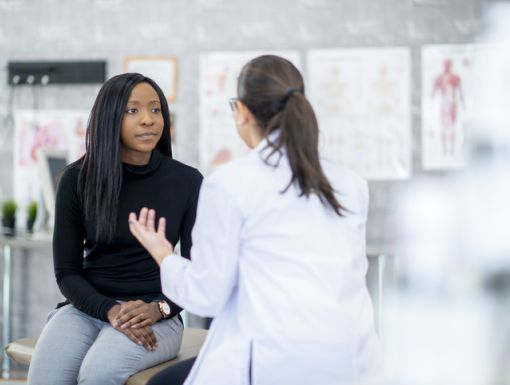
How to Prevent Bacterial Vaginosis (BV)
Bacteria naturally live in the vagina, and the body usually maintains a perfect balance of these different types of bacteria. However, overgrowth of bacteria can occur, leading to conditions like bacterial vaginosis, often called BV. One in 3 women will get BV, and it is the most common vaginal condition in women ages 15-44. While BV is common and very treatable with antibiotics, if not managed, it can lead to complications and increase your risk of sexually transmitted diseases by changing the pH of the vagina.
What causes bacterial vaginosis?
When healthy bacteria in your vagina get out of balance or grow too much, BV can happen. It is often caused by Gardnerella vaginalis, the most common type of bacteria in your vagina. When BV occurs, this bacterium is often at levels 100 or even 1,000 times more than usual.
Doctors are not entirely sure what causes BV, but anything that changes the chemistry of your vagina’s pH balance can upset bacteria levels and lead to infection. This can include douching (which is not recommended) or using fragranced products or vaginal deodorants. While BV is not a sexually transmitted disease, having sex with new or multiple partners can also increase your risk of getting BV. It is also possible for your partner’s natural genital chemistry to affect yours and cause bacteria to grow.
Who is more likely to get bacterial vaginosis?
While BV can happen to anyone, some groups of people have higher levels of infection rates, including people who:
- Do not use condoms or other forms of barriers during sex
- Have multiple sexual partners
- Douche or use other vaginal washes. The practice of rinsing out your vagina with water or a cleansing agent (douching) upsets the natural balance of your vagina.
- Have an intrauterine device (IUD) · Are pregnant. BV is common during pregnancy. About 1 in 4 pregnant women get BV. The risk for BV is higher for pregnant women because of the hormonal changes that happen during pregnancy.
What are the symptoms of bacterial vaginosis?
It is possible not to have any symptoms with BV. If symptoms are present, you might experience:
- An increase in vaginal discharge that may appear white or grey and have a “fishy” odor
- Burning when peeing
- Itchiness and pain near the vulva, which is the outer part of the genitals
How is bacterial vaginosis diagnosed?
If you have symptoms of BV, you should schedule an appointment with your doctor or healthcare provider. They will likely do a physical exam and possibly take a vaginal fluid sample. This sample can also help rule out other medical conditions, like yeast infections. BV and yeast infections can have similar symptoms, so knowing if you have BV or a yeast infection can be hard. Only your doctor or
provider can tell you if you have BV. With BV, your discharge may be white or gray but may also have a fishy smell. Discharge from a yeast infection may also be white or gray but may look like cottage cheese.
Sometimes the swabs are testing for DNA of certain bacteria. Sometimes these can be positive (sensing the DNA in the vagina) but not actually mean an acute overgrowth. This is why it is best to see your doctor so they can correlate your discharge with your test results.
What are treatment options for bacterial vaginosis?
If you get a confirmed diagnosis of Bacterial vaginosis, it can be easily treated with antibiotics that are taken by mouth or inserted into the vagina as a cream or gel. Some minor cases of BV might also clear up on their own. If your doctor decides to put you on antibiotics, it is important to follow dosage instructions carefully to ensure the infection clears up fully. If symptoms persist even after finishing your antibiotic treatment, talk with your doctor.
Should I avoid sex while I have bacterial vaginosis?
Having BV can make having sex painful, so it is best to avoid sex with BV. Male partners don’t need to be treated for BV. If you have a female partner, she can get BV, too, so you should refrain from sexual activity while your BV clears up. It’s also important to let her know so she can get treatment.
What happens if I do not treat bacterial vaginosis?
Typically, BV does not cause many issues, and it is easy to treat. However, if you do not seek care or frequently get BV, you can increase your chances of:
- Contracting sexually transmitted infections (STIs) like chlamydia, gonorrhea or HIV
- Going into pre-term birth if you have BV while pregnant
- Getting pelvic inflammatory disease. The bacteria can spread to the uterus and fallopian tubes, which can cause pelvic inflammatory disease. This can lead to pain, infertility and an increased risk of ectopic pregnancies, which is when the fertilized egg implants outside the uterus. The egg cannot survive in this state, and it can be life-threatening to the pregnant patient.
How can I prevent bacterial vaginosis?
While you can’t always prevent BV, there are certain tactics you can follow to decrease your chances, including:
- Taking probiotics or eating food rich in probiotics like yogurt
- The vagina is a self-cleaning oven! Do not put any “cleansing” products in it
- Avoid douching
- Avoid using scented washing products or scented tampons
- Keep the area cool by wearing cotton or cotton-lined underpants.
- Using a condom or other barrier during sexual activity



